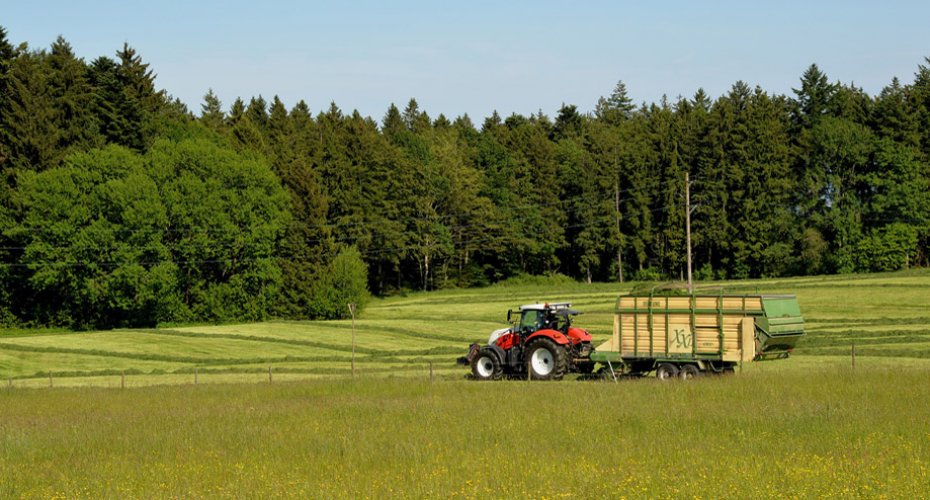
If you'd like to talk to us about supporting a particular area of research, please email alumni@exeter.ac.uk or call +44 (0)1392 723141.
Build a sustainable economy
In any business there are ‘stakeholders’, whether employees, partners, investors or the wider community. But one critical stakeholder is all too frequently left off that list – the planet.
Harvesting energy from raw materials extracted from the Earth has fuelled economic growth, created higher living standards and paved the way for technological progress. But it has also created economies and societies that are unsustainable.
A sustainable economy is one that is resilient and provides a good quality of life for everybody. The world faces major issues – such as climate change, limited natural resources and changing age demographics. The need for transition to a more sustainable economy is creating risks for organisations that do not change, and global market opportunities for entirely new solutions.
Businesses that put the environment at the heart of decision-making will create sustainability as well as lasting prosperity.
It is this vision, of sustainability and business standing side-by-side, that the University of Exeter Business School stands for.
An understanding of how UK farmers, foresters and other land managers respond to change – and critically how they can adapt to future change - is essential if the UK is to build a resilient and sustainable future for farming, food and the environment. Research which provides answers to these questions lies at the very heart of the work carried out by the Centre for Rural Policy Research (CRPR) at the University of Exeter.
The Centre has a longstanding reputation as one of the leading research groups in the UK based on a successful track record of rural policy work dating back to the 1960s. For more than 50 years our research has consistently been used to inform governments, businesses and communities about how the land and the environment can be managed better. We effect real change by researching issues of critical importance to rural areas and using the evidence to influence the development of more effective policy and practice.
With its wealth of research expertise the CRPR can help the UK understand how to create a sustainable future for farming and the environment. We can do this through providing detailed briefings to enhance understanding and policy making, and through the delivery of high impact research projects concentrating on the key questions.
Research led by Dr Jean-Francois Mercure has contributed to the development of a global model which forecasts the positive and negative impact that a transition to low carbon technology and renewable energy would have on our economy. This evidence has informed government climate policies internationally. The model has been developed in collaboration with University of Cambridge, the Open University, SOAS, the University of Massachusetts and Cambridge Econometrics.
Over the past decade there has been increasing debate within the Bank of England and central banks across Europe concerning the possible risk to the financial sector in relation to an energy transition (a global shift from fossil fuels to renewables). There was also growing demand in policy-making for transparency and assessment of risk in order to move forward with decisions surrounding climate policy.
To address this need for evidence-based decision-making, Jean-Francois Mercure’s research models the economic and financial impact of moving away from fossil fuels to renewable energy sources, research that is beginning to shape attitudes towards future fossil fuel investment. The work also quantifies the risks posed to oil and gas companies and job losses in related industries.
He led a paper titled ‘Macroeconomic impact of stranded fossil fuel assets’ published in 2018 which quantified all the coal, oil and gas assets that are unlikely to be used if the world achieves the carbon-neutral objectives laid out in the Paris climate agreement, as well as in the current trajectory of technological change even if no new measures were taken to achieve the Paris Agreement. The research revealed that a move to clean energy and electric transport is already happening, and will result in lower demand for fossil fuels than expected, with an estimated loss of between one and 4tn$ by 2035 due to stranded fossil fuel assets.
This discovery received global media attention and was cited in major newspapers in the UK and abroad. This piece contributes to the body of evidence driving decisions within the Bank of England in relation to climate policy. Jean-Francois is invited to speak in UK government regularly to provide evidence regarding a low energy transition.
The Exeter Centre for Circular Economy (ECCE) was formally launched in September 2018 by Dame Ellen MacArthur. ECCE is a new research centre comprising staff based in three locations, Streatham, Penryn and London. We are a multi-disciplinary team composed of economists, engineers, designers, sociologists, management academics and practitioners.
In recent years, the term circular economy has shot to the top of business leaders’ vocabulary and become synonymous with re-thinking the future of business. The old model of a linear economy, where businesses extract raw materials to make goods for consumers around the world, who use and then discard them, is not a sustainable solution for the long-term.
The circular economy promotes a shift from these standard, waste-generating business practices to those where resources are kept in use for as long as possible. It is an economy that is regenerative and restorative by design, rather than extractive and degenerative. In short it is a profound and radical shift in the way we think about and do business. An economy for the 21st century and beyond.
A study by the Ellen MacArthur Foundation showed that a circular economy, enabled by the technology revolution, would allow Europe to grow resource productivity by up to 3 percent annually. This would generate a primary resource benefit of as much as €0.6 trillion per year by 2030 to Europe’s economies, and in addition, would generate €1.2 trillion in non-resource and externality benefits, bringing the annual total benefits to around €1.8 trillion.
The theory and practice of circular economy is still evolving and there is a need for rigorous scientific and social research to evaluate the benefits and support the design of effective solutions. As well as academic research, the Centre works extensively with businesses to develop more sustainable practices that benefit everyone, and to build confidence amongst leaders and decision-makers.
Sustainable finance integrates environmental, social, governance (ESG) factors into financial decisions. The Exeter Sustainable Finance Centre aims to use rigorous academic research to influence the practice of sustainable and responsible finance, offer education and research events, and engage with global stakeholders. Our key research areas include sustainable and responsible investments, climate risk, and stakeholder governance.
A survey conducted by insurance company Aviva recently found that the pandemic has increased public interest in sustainable investing. According to this research, 55% of respondents agreed that the pandemic means they are more likely to take ESG factors into consideration when deciding where to invest their money.
81% said the pandemic has made choosing sustainable investments more important and 67% said environmental factors are the most important, namely those that related to pollution, climate change, waste and recycling and promoting animal welfare.
In addition businesses with strong environmental and social credentials are more resilient in times of economic crisis, according to research into the COVID-19 stock market crash.
Chendi Zhang, a professor of finance at the University of Exeter Business School, and his co-authors measured the performance of US stocks in the first quarter of 2020, in which the financial market saw its fastest ever collapse due to the coronavirus pandemic.
They found that in the three weeks between the start of the stock market decline and the US government’s 18 March bail-out package, firms with high ESG ratings outperformed those with low ESG ratings by 7.2 per cent.



